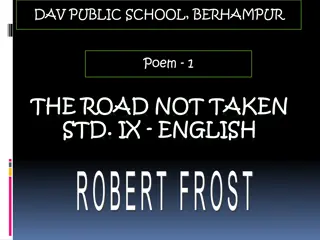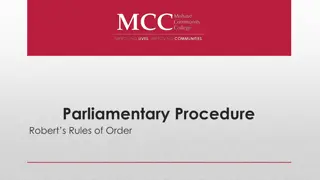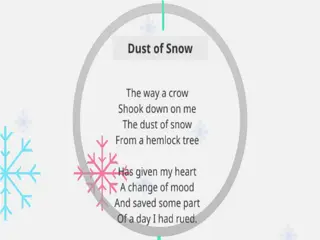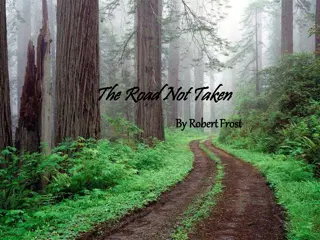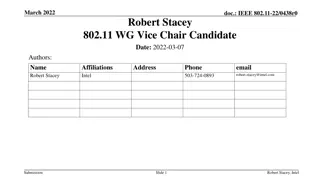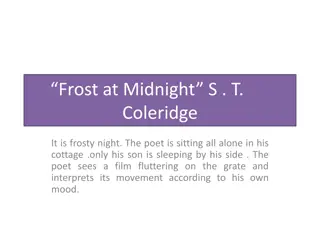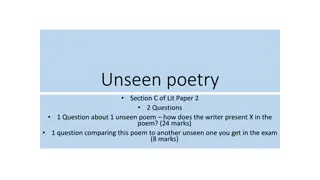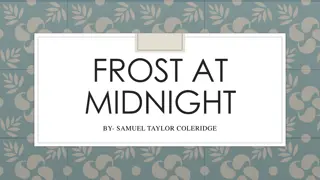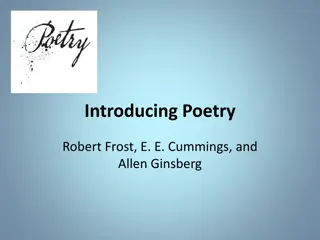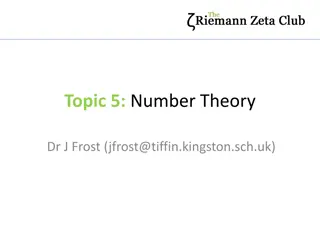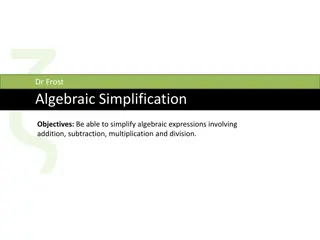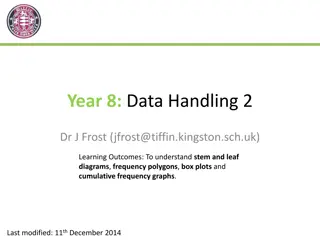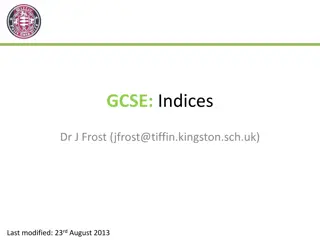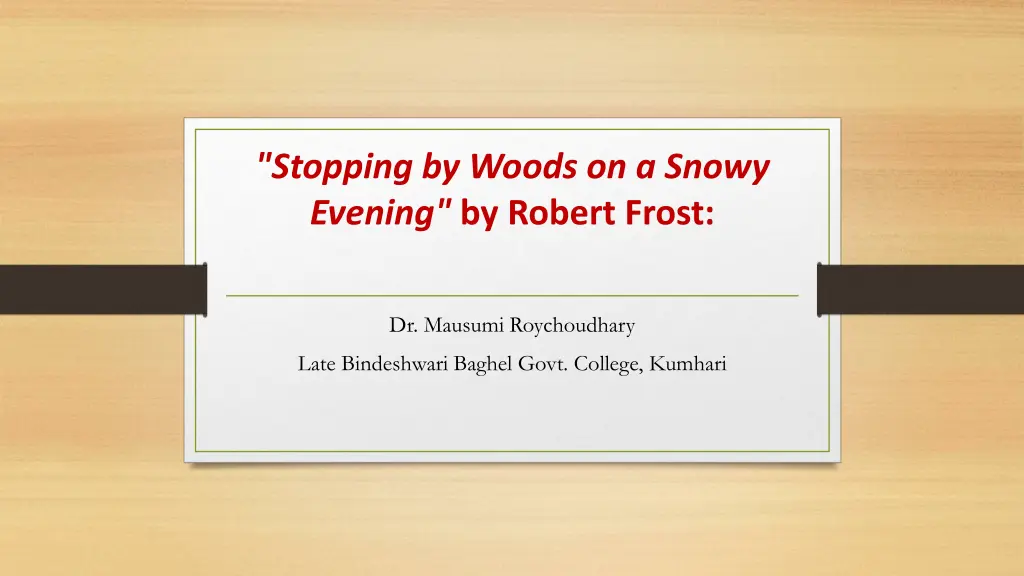
Interpreting 'Stopping by Woods on a Snowy Evening' by Robert Frost
Explore the themes and symbolism in Robert Frost's famous poem 'Stopping by Woods on a Snowy Evening', as the speaker contemplates nature, responsibilities, and the allure of a snow-covered landscape. Discover the deeper meanings behind the horse's actions, the significance of the repeated line "And miles to go before I sleep," and the emotional response evoked by the peaceful woods on a dark winter evening.
Download Presentation

Please find below an Image/Link to download the presentation.
The content on the website is provided AS IS for your information and personal use only. It may not be sold, licensed, or shared on other websites without obtaining consent from the author. If you encounter any issues during the download, it is possible that the publisher has removed the file from their server.
You are allowed to download the files provided on this website for personal or commercial use, subject to the condition that they are used lawfully. All files are the property of their respective owners.
The content on the website is provided AS IS for your information and personal use only. It may not be sold, licensed, or shared on other websites without obtaining consent from the author.
E N D
Presentation Transcript
"Stopping by Woods on a Snowy Evening" by Robert Frost: Dr. Mausumi Roychoudhary Late Bindeshwari Baghel Govt. College, Kumhari
Whose woods these are I think I know. His house is in the village though; He will not see me stopping here To watch his woods fill up with snow. My little horse must think it queer To stop without a farmhouse near Between the woods and frozen lake The darkest evening of the year. He gives his harness bells a shake To ask if there is some mistake. The only other sound s the sweep Of easy wind and downy flake. The woods are lovely, dark and deep, But I have promises to keep, And miles to go before I sleep, And miles to go before I sleep.
What does the horse do when the speaker stops? A) Nuzzles the snow B) Runs away C) Shakes its harness bells D) Lies down . What is the setting of the poem? A) A bustling town square B) A snowy village street C) Woods on a dark winter evening D) A mountain cabin
The poem can be interpreted as a reflection on: A) A simple journey through the woods B) Nature's beauty and its distractions C) The responsibilities and obligations of life D) A fear of being alone Who owns the woods the speaker stops by? A) The speaker B) A villager the speaker knows C) A stranger from another town D) The speaker s friend Why does the speaker stop in the woods? A) To rest for the night B) To admire the peaceful snowfall C) To meet someone D) To escape a storm
The repetition of the line And miles to go before I sleep likely indicates: A) The speaker s excitement about traveling B) The speaker s fatigue and desire for rest C) The importance of the woods D) The horse s impatience What does the phrase "miles to go before I sleep" most likely symbolize? A) A long journey home B) The speaker s unfinished responsibilities C) Physical exhaustion D) The beauty of the snowy woods What time of day is it in the poem? A) Morning B) Afternoon C) Evening D) Midnight
What feeling does the snowy woods evoke in the speaker? A) Fear and anxiety B) Joy and excitement C) Peace and contemplation D) Boredom and frustration What sound breaks the silence of the woods? A) The wind howling B) A traveler s footsteps C) The hoot of an owl D) The harness bells of the horse . The line The woods are lovely, dark and deep suggests: A) The woods are dangerous and foreboding B) The woods are beautiful but distracting C) The woods are haunted D) The woods are difficult to navigate
Fill-in-the-Blank Questions 1. The speaker stops by the woods on a night that is ______ and ______. (dark and snowy) 2. The sound that interrupts the silence of the woods is the shaking of the horse s ______ ______. (harness bells) 3. The woods belong to a man who lives in the ______. (village) 4. The speaker has miles to go before they ______. (sleep) 5. The poem is written by ______ ______. (Robert Frost)
True/False Questions The speaker in the poem is traveling with a companion other than the horse.(False) The poem uses a consistent rhyme scheme throughout The woods belong to someone who lives in the village The horse is confused because they usually don t stop in the woods without a farmhouse nearby The final lines suggest the speaker has no responsibilities left to fulfill

